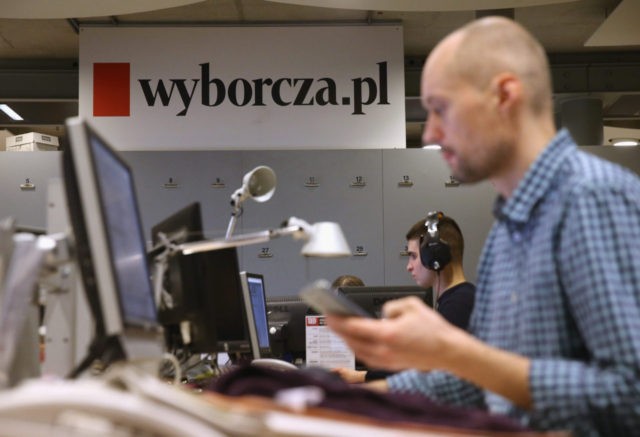The editor of Poland’s largest broadsheet newspaper has appealed to the European Union (EU) for funding to keep it afloat as its liberal stance, which has caused it to be snubbed by the populist government, has sent its circulation figures into freefall.
Despite the collapse of its readership, Roman Imielski, the online Editor-In-Chief of Soros-backed Gazeta Wyborcza, was defiant when he talked to Euractiv this week, blaming the government for his paper’s woes.
“We have two problems,” he said. ”The first one is about money, because the government stopped publishing advertisements in the newspaper. The second is an access problem because the new government and the ruling party don’t talk to our journalists anymore.”
He added: “We are the biggest broadsheet in Poland and we should have the chance to question our President, Prime Minister and other members of the government.”
Also in Imielski’s sights was Facebook, which he blamed for spreading fake news, helping the populist government to power.
“The main social media platform in Poland is Facebook: they have more than 13 million users, while we have only over 5 million real visitors. More and more people in Poland don’t read newspapers or watch TV. Their only source of information about the world and Polish politics is social media.
“The last parliamentary and presidential elections in Poland were marked by the very clear sign of populism, because the ruling party made many populist promises to Polish citizens.
“What is even more interesting for us, is that for the first time in Poland the main source of ‘information’ were social media platforms and fake news sites. It was unbelievable because these fake news were spreading very quickly and very broadly on the internet.
“This is a big problem for a media like us: how to fight against fake news?”
Imielski’s solution is for the EU to step in and prop up the failing mainstream media.
“It is time to think about the media as a very important part of public life and of democracy in the European Union,” he said. “I don’t understand why the EU has supported other sectors in crisis like coal mines or factories but they are not helping the media.”
He added: “Unfortunately the European Union doesn’t have many tools to force the Polish government to treat newspapers fairly. What we can expect however, is that the European Union doesn’t forget about us, doesn’t forget about Poland.”
Gazeta Wyborcza dominated the Polish media market for over two decades, from its inception as the voice of the Solidarity Movement during the collapse of Communism in 1989 (the motto on its masthead reads: “There’s no freedom without solidarity”), until 2010, when it was overtaken by the tabloid Fakt.
Since then its circulation figures have continued to collapse, dropping a significant 17 per cent in one year alone between 2012 and 2013, with a commensurate withdrawal of advertising revenue, most likely thanks to its staunch adherence to liberalism, leading to charges by the public that it churns out “German propaganda”.

COMMENTS
Please let us know if you're having issues with commenting.